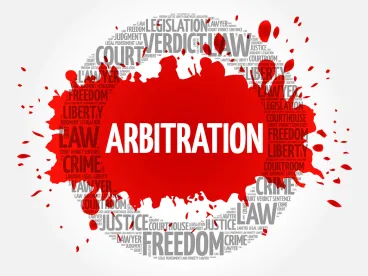The NJ Supreme Court recently settled two open issues that jeopardized the enforceability of many arbitration agreements within the state. The first concerned the issue whether an arbitration agreement should be invalidated based on an argument that the employee did not affirmatively “agree” or assent to be bound by it. The second concerned whether an arbitration agreement was defective because it failed to designate an arbitrator or set forth an arbitrator selection process. In each case, the Court said no.
In Skuse v. Pfizer, Inc., decided August 18, 2020, the employee clicked on a link in which she simply “acknowledged” the arbitration agreement. The agreement itself stated that the employee understood that her acknowledgment of the agreement was not required for it to be enforced. The agreement further stated:
“If you begin or continue working for the Company sixty (60) days after receipt of this Agreement, even without acknowledging this Agreement, this Agreement will be effective, and you will be deemed to have consented to, ratified and accepted this Agreement through our acceptance of and/or continued employment with the Company.”
Other emails and slides the employee received as part of a company training program stated that agreeing to arbitrate disputes was a condition of her employment.
Following her termination of employment, the employee filed a civil action against the company under the New Jersey Law Against Discrimination, alleging religious discrimination. While the trial court dismissed the suit holding she was bound by the arbitration agreement, the Appellate Division reversed, concluding that the employee had not agreed to the agreement’s terms simply by “acknowledging” it. The Supreme Court, in a 5 to 1 decision, disagreed and reversed the Appellate Division. Though noting that
the company could have better labeled its communication explaining the arbitration agreement, the Court concluded it was still enforceable because it clearly explained what rights the employee was waiving by agreeing to arbitrate. The employee had been asked to “acknowledge” her understanding that she “must agree” to the agreement, and even if she had not clicked the “acknowledge” button, her continued employment by the company was deemed by the Court to constitute her consent to, and ratification and acceptance of, the agreement’s terms. Further, the fact that the agreement was delivered by email to the employee was insufficient ground to invalidate it.
On September 11, 2020, a unanimous Supreme Court, in Flanzman v. Jenny Craig, Inc., ruled that an arbitration agreement was enforceable even though it was silent on how an arbitrator would be appointed to hear a dispute. The employee had commenced a suit against the company, alleging age discrimination, constructive discharge, discriminatory discharge and harassment. The trial court granted a motion to dismiss and directed that the dispute be arbitrated. The Appellate Division reversed the trial court because the agreement did not designate an arbitral forum. The Supreme Court again reversed the Appellate Division, reasoning that both under the Federal Arbitration Act and the New Jersey Arbitration Act, a court is empowered to appoint an arbitrator when the parties to an arbitration agreement have not agreed upon one or designated an arbitrator selection procedure. Stated otherwise, the Court concluded that the absence of arbitrator selection language within the body of the agreement is not, in and of itself, ground to void an arbitration agreement.
Takeaways
It is always best practice to require an employee, as a condition of employment, to sign an arbitration agreement affirmatively accepting its terms and agreeing to be bound by it, and for that agreement to explain the method by which an arbitrator will be appointed, among other critical elements. However, these two decisions offer employers a measure of relief for arbitration agreements already in existence that are missing one or both of those elements. In addition, these cases present a good reminder that employers should review and revise their arbitration agreements periodically.




 />i
/>i

